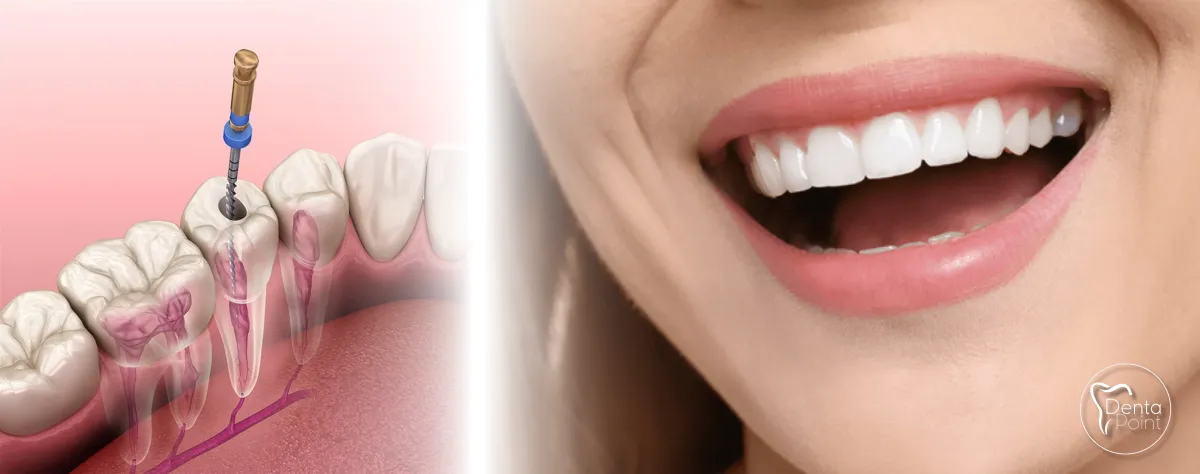Endodontics. Root canal treatment in Turkey İzmir
What is root canal treatment?
In the early stages of tooth decay, the problem is solved by filling the tooth. In the advanced stages of decay, when the decay reaches the pulp of the tooth, severe pain begins. The occurrence of severe pain indicates that the pulp chamber of the tooth, which contains the nerve and blood vessels, is irreversibly inflamed. At this stage, the tooth becomes prone to forming an abscess. Root canal treatment is a procedure that can end a painful process that may lead to tooth extraction and keep your tooth in your mouth for a longer time.

How is root canal treatment performed?
Before root canal treatment, local anesthesia is applied. After anesthesia, the decay of the tooth is cleaned, reaching the roots. Infected tissues in the root canals are cleaned. The inside of the canals is irrigated with antibacterial solutions. If the infection in the tooth's canals can be completely eliminated, your root canal treatment is completed in a single session. The canals are filled tightly. The tooth is filled.
How long does root canal treatment take?
The duration of root canal treatment varies from case to case but is generally completed in one or two sessions. In cases of severely infected teeth, a medication and temporary filling are placed inside the canals in the first session, left for a week, and then the root canal treatment is completed. The number of sessions can be three or four depending on the level of inflammation of the tooth.
Is completing root canal treatment in one session problematic?
If possible, completing root canal treatment in a single session is more accurate. It is more comfortable for both the patient and the dentist, making a difference in the health of the tooth. However, if the canals are infected and there is excessive percussion pain in the tooth (pain under pressure), it is more appropriate to complete the treatment in 2 or 3 sessions.
Is there pain after root canal treatment?
In most cases, there is pain for a week after root canal treatment. This is due to the new treatment of the canals and the surrounding tissue of the tooth not yet healing. The pain is temporary and always milder than before root canal treatment. In some cases, there may be no pain at all, but it is normal for pressure pain to continue for a while. After the completion of root canal treatment, the tooth becomes asymptomatic within a week.
Is root canal treatment painful?
Root canal treatment is a painless procedure as it is performed under local anesthesia. However, in cases where the inflammation of some teeth is advanced, there may be problems with numbness. In this case, regional anesthesia or antibiotic therapy may be required.
Is it true that my tooth needs to be crowned after root canal treatment?
In most teeth that require root canal treatment, it is healthier to crown or apply inlay-onlay after root canal treatment due to excessive tissue loss (large decay).
May root canal treatment fail?
Some teeth may have root canal forms that are excessively curved, or the canals may be completely blocked. In such cases, no matter what the dentist does, the treatment may not be successful. In such a case, apical resection or tooth extraction may be required.
Root canal treatment is done, but the pain continues. Could the nerves have not been removed?
The relief of pain after root canal treatment is not solely dependent on the removal of the tooth's nerve. The healing of the tissues surrounding the root is also required. Pain during this healing process is normal and temporary.


